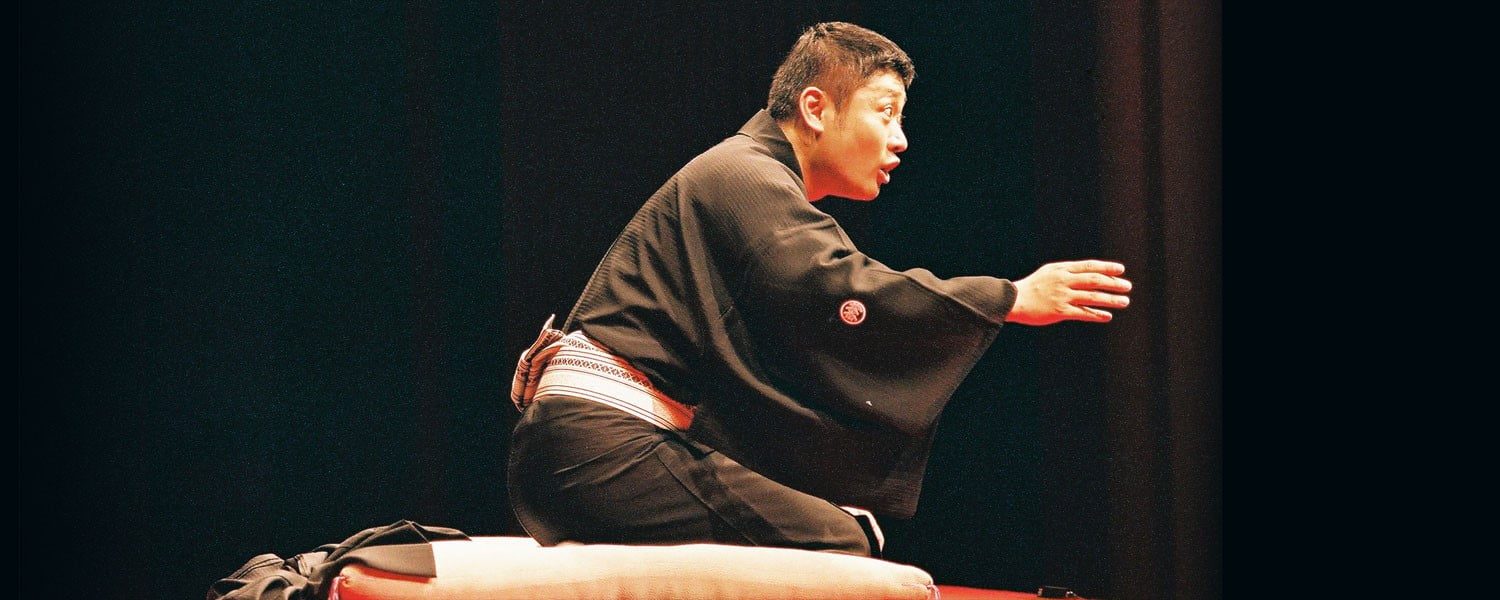At the level of day-to-day communications, humor does not typically help to bring the Hungarians and Japanese closer together. For us, humor is a nearly surefire way of establishing a connection and keeping it going. In Japan, being a “serious person” and not joking around is considered much more appropriate. Presenting yourself in an ironic way is rare indeed. Taking oneself seriously is typical, although, interestingly enough, the Japanese are not self-satisfied or conceited.
On matters of humor there tends to be a gap between day-to-day life and the arts in Japan. Up until the 18th century, humor was very much a part of Japanese literature, painting and, in particular, its theatrical productions. One example was Kyōgen theater, presented during intermissions in Noh performances, as comedic interludes to reduce the tension. Manzai is also many hundreds of years old. Manzai is a two-player act, in which a straight man tries to tell off a funny man in which might even be described as stand-up comedy. Rakugo is perhaps closest to the stand-up comedy popular in the west except, of course, that the performer goes through their entire routine sitting down. This solo performer plays multiple roles through dialogues, expressed as variations in voice pitch. The power of this performance lies more in the non-verbal aspects of the presentation – facial expression, demeanor, gesticulation, and tone. The genre ridicules various human archetypes and continues to be quite popular, with new stories appearing alongside the traditional classic tales. While once a male-only domain, more and more women perform in the modern versions.

The reserved style in contemporary Japanese society might suggest that humor is considered a source of danger, a tool with which one might inadvertently insult or injure someone else. And that is something the Japanese people are very careful not to do. The traditional Japanese way of thinking distances itself from the amusing repartee that smacks of originality. Perhaps elderly folk, who have attained a high level of respect, might allow themselves to joke a bit more than the average.
Japanese humor tends to satirize human character. They enjoy poking fun at major or minor human shortcomings. They also like gags and situation comedy. Jokes, as such, are not particularly well-known, but humorous anecdotes go over well. If there are a number of “big talkers” in a group, the tales pour out like an avalanche and the conversations are funny enough to keep Europeans laughing along with the locals. Japanese humor tends to be folksy and easily understandable, while intellectual jokes and highbrow humor are harder to come by.
In the course of Japanese history, the merchant social stratum did more to popularize the humorous genre than anyone else and merchants tended to be lower in the social hierarchy. As such, humor was considered “low prestige,” categorized among the more vulgar and popular matters. In fact, there are many lowbrow comedy shows on television. Europeans tend to prefer the short stories that reflect a more refined humor and they sometimes try to come forward with the absurd and/or grotesque humor found in Europe.
European humor is often based on things being turned upside down, and on the attitude that hardly anything is too “sacred”. The broader humor of Hungary (and Central Europe) includes subjects that the Japanese could consider too shocking to laugh at. These subjects include illness, disabilities, and cultural differences between ethnicities. If we try to joke about topics of this sort, the Japanese response could be extremely negative; although most likely they won’t even get the joke, it will nonetheless make them uncomfortable.
In other words, yes, the Japanese do have a sense of humor – it’s just a little different from ours. And if we try to force things that we think are funny on them, in most cases it will backfire. But, of course, that always depends on who the person is, and, perhaps, on the situation, too. Most foreigners in Japan are familiar with business life, where people are quite reserved. Among friends and family, however, the lines are more flexible on the humor front. So, when you’re mixing with Japanese people, pay careful attention to those lines. First take the time and energy to observe your surroundings, and start cracking the jokes later.
Sources:
http://vashkuckoja.wordpress.com/2012/07/30/ket-japan-munkakerulo-beszelget-a-japan-humor-nyomaban/
http://www.japantimes.co.jp/opinion/2007/03/27/commentary/a-japanese-sense-of-humor/#.U-DXjOOSzTo
http://www.jref.com/forum/all-things-japanese-26/western-sense-humor-vs-japanese-sense-humor-51453/#.U-DXQeOSzTo
Images:
http://blog.tusitalabooks.com/singapore-international-storytelling-festival/